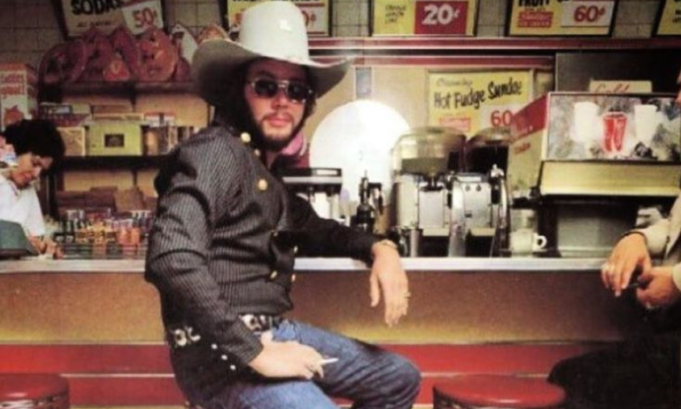He was born into country music royalty, but Hank Williams Jr. didn’t just follow in his legendary father’s footsteps—he bulldozed his own path. Bold, loud, and unafraid to ruffle feathers, he transformed the genre by fusing country with rock and blues, becoming a voice for the rebellious, the rowdy, and the real.
Long before he ever stepped on stage, music ran through his blood. Born Randall Hank Williams on May 26, 1949, just one month before his father joined the Grand Ole Opry, he was destined for the spotlight. Nicknamed “Bocephus” by his father, Hank Jr. began performing at age eight, opening for acts like the Big Bopper and Carl Perkins. By age eleven, he was already standing tall on the stage of the Grand Ole Opry. And at just fourteen, he released his first album—an homage to the man whose shadow loomed large over his entire career.
But Hank Jr. wasn’t content living in anyone’s shadow.
Rebellion, Reinvention, and a Near-Death Fall
As he got older, Hank Jr. began to push back. He formed his own band, dabbled in rock & roll, and dreamt of blending it with the country sounds he was raised on. That dream became reality in the mid-1970s, when he packed up and moved to Alabama, determined to find his own voice.
Then came August 8, 1975. While hiking in Montana, Hank Jr. suffered a horrifying accident—he fell 500 feet down Ajax Peak, sustaining severe head injuries. Most thought he wouldn’t survive. But against all odds, he did. And the man who emerged from that accident wasn’t just scarred—he was transformed.
He grew a beard, wore dark sunglasses to hide the wounds, and leaned hard into a gritty, raw persona that matched the music he’d been aching to make. Just months after the fall, he released Hank Williams Jr. & Friends, a groundbreaking album that combined Southern rock, blues, and country in a way few had dared.
The Sound of a New Generation
With a sound all his own, Hank Jr. kicked off a streak that would dominate the next two decades. His albums Family Tradition (1979) and Whiskey Bent and Hellbound (1979) produced anthem after anthem that became staples of American life. Songs like “All My Rowdy Friends (Have Settled Down),” “A Country Boy Can Survive,” and “Born to Boogie” didn’t just top charts—they stirred something in the soul of working-class America.
He didn’t just perform—he put on a show. Switching between guitar, piano, fiddle, banjo, and even steel guitar, he proved he wasn’t just a legacy act. He was a musical powerhouse in his own right.
Between 1979 and 1992, he released 21 gold and platinum albums, won multiple CMA and ACM Entertainer of the Year awards, and even wrote the unforgettable Monday Night Football theme that earned him four Emmy Awards.
A Lasting Legacy
By the 1990s, his influence was impossible to ignore. Artists like Kid Rock, Brantley Gilbert, Eric Church, and Jason Aldean drew from the fearless fusion he pioneered. He wasn’t just a country star—he was the godfather of country rock.
In 2007, he was inducted into the Nashville Songwriters Hall of Fame, a recognition long overdue. And in 2020, he joined his father as a member of the Country Music Hall of Fame—one of only a few father-son duos to ever earn that honor.
Despite critics and controversy, Hank Williams Jr. stayed true to himself. Through it all—the pressure of legacy, a near-death fall, industry pushback—he never flinched.
He once said:
“If you don’t like Hank Williams, you can kiss my a*.”*
That wasn’t just a lyric. It was a mission statement.









